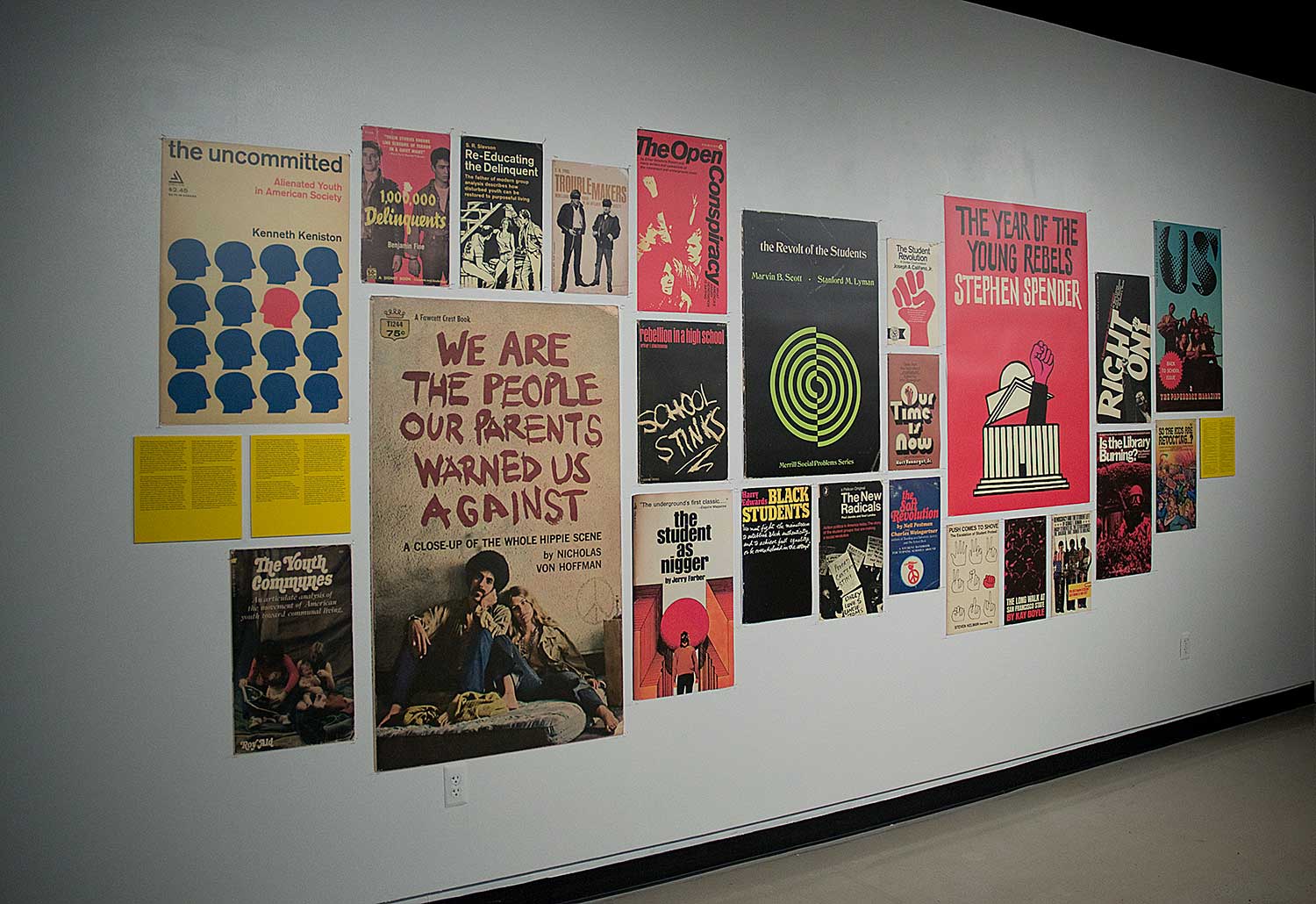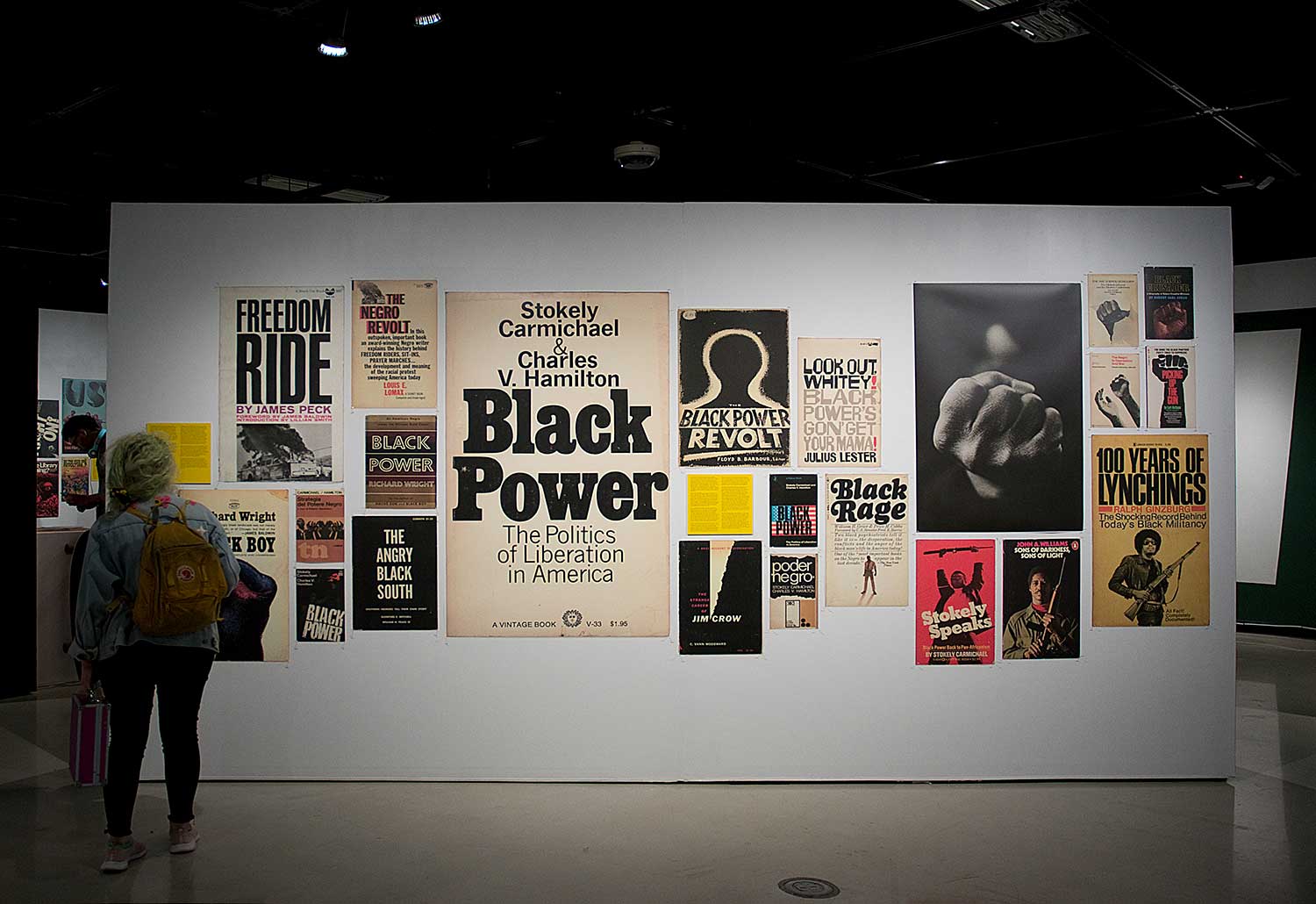Have We Met: Dialogues on Memory and Desire draws inspiration from Ann Arbor’s legacy of social movements (Anti-War Movement, Civil Rights Movements) and experimental art practices (The Once Group) from the late-1950s to the 1970s as its point of departure. It brings together archival materials and reproductions from the University of Michigan’s Labadie Collection and the Bentley Library in conjunction with radical artworks by diverse, multi-generational artists and designers whose works are deeply influenced by the ideas of freedom and self-determination; re-writing the canonical accounts of history; and building contemporary culture and solidarity through collective action.
Artists: Rudolf Baranik, Stephanie Dinkins, Emory Douglas, Brendan Fernandes, Chitra Ganesh, Carole Harris, Maren Hassinger, Al Loving, Josh MacPhee, Native Art Department International, Michele Oka Doner, Yoko Ono, Kameelah Janan Rasheed, Martha Rosler, Buster Simpson, Gregory Sholette, Leni Sinclair, Stephanie Syjuco, Graem Whyte, and Zafos Xagoraris.
Curated by Srimoyee Mitra.
Images are of Josh MacPhee’s installation, Book Power—two walls covered with oversized book covers. Since the paperback revolution in the 1950s and 60s, the book has played an outsized role in the political imaginary of both partisan propagandists and the general public. Book Power pulls the covers off pulp paperbacks and academic studies and asks us to see them as attempts at articulating society’s relationship to their subject matter, in the realms of politics, design, and commerce. These oversized covers ask to be looked at not simply as documents from the past, but as free-standing representations of powerful political ideas that resonate heavily in our present. These images function as a compendium of the design and visual impact of the political paperback, and as a journey through the interplay and tenuous relationships between powerful social movements, their spokespeople, and the major publishers that printed and promoted their ideas.

